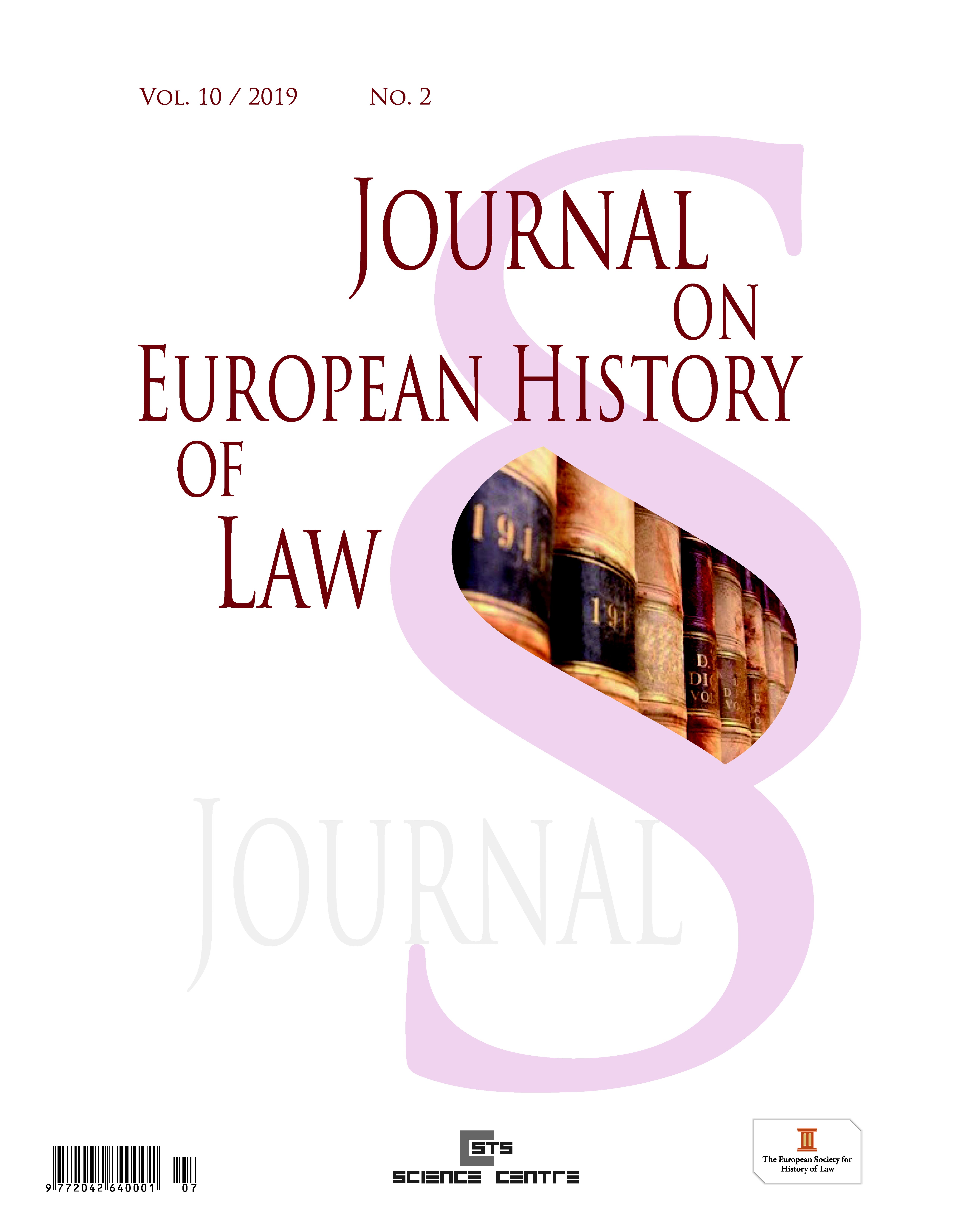Legal and Social Status of the Church in Great Moravia
Legal and Social Status of the Church in Great Moravia
Author(s): Róbert JágerSubject(s): History, Law, Constitution, Jurisprudence
Published by: Evropská společnost pro právní dějiny, z.s.
Keywords: Great Moravia; church; public power; state.
Summary/Abstract: The paper describes the position of the Church in Great Moravia, while trying to point out whether the statement of the history of state and law on a strong link between the state and the church in the contemporary period is really true. The author states that the generally accepted opinion (about the strong link between the state and the church in the given period) is only based on the analogy about the development of the state-church relationship in the countries neighboring Great Moravia (on which history we have more written sources), or in the countries that originated after the extinction of Great Moravia (Bohemia and the Kingdom of Hungary). In the next section, the author contemplates whether it is really possible to characterize the relationship between the state and the church in the way it is presented in current works. In the first part of the paper the author presents the opinion that already in 833-863 there were educated clerics at the court of the Great Moravian princes who held high positions in the state administration. This is justified by references in contemporary texts. At the same time, he points out that in the period in question in Great Moravia there was also a church administration at the lower level, controlled by Passau. The second part presents views on the relationship between the state and the church in the years 863-885. In this part, the author points out that the ruler of Great Moravia acted as a judge in church and theological disputes, had competence in appointing bishops, provided them with means of subsistence, etc. He also points out that secular and ecclesiastical affairs also overlapped at the level of foreign relations, as well as in teaching home clergy in clerical schools that were founded by Constantine and Methodius. In the last part of the paper, it is pointed out that the Great Moravian legal texts contained norms with secular and ecclesiastical sanctions. On a concrete example, the author points out a possible contradiction in the practical imposition of these sanctions, trying to explain how this contradiction would be approached from a Christian philosophy perspective.
Journal: Journal on European History of Law
- Issue Year: 10/2019
- Issue No: 2
- Page Range: 115-120
- Page Count: 6
- Language: English

